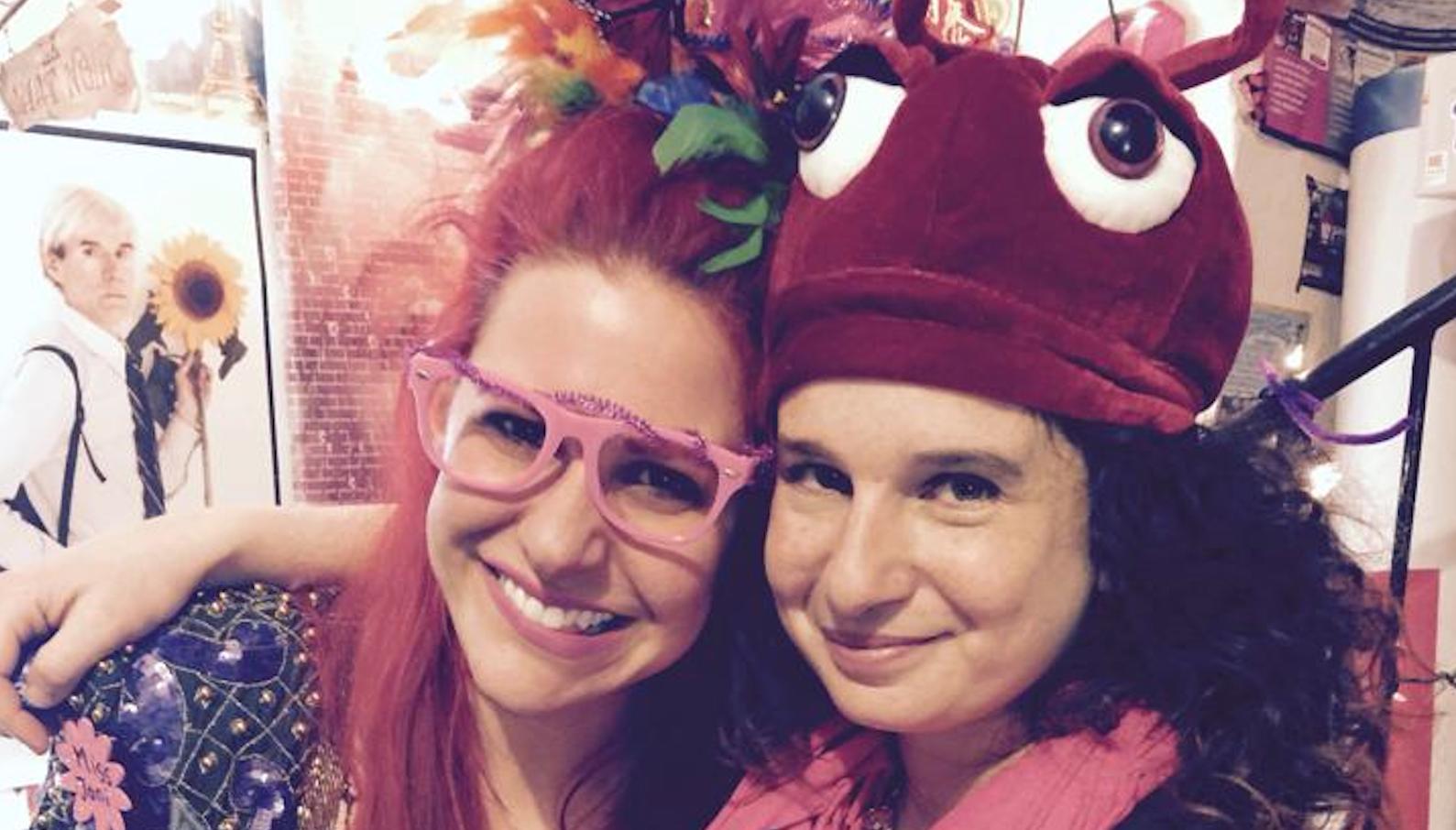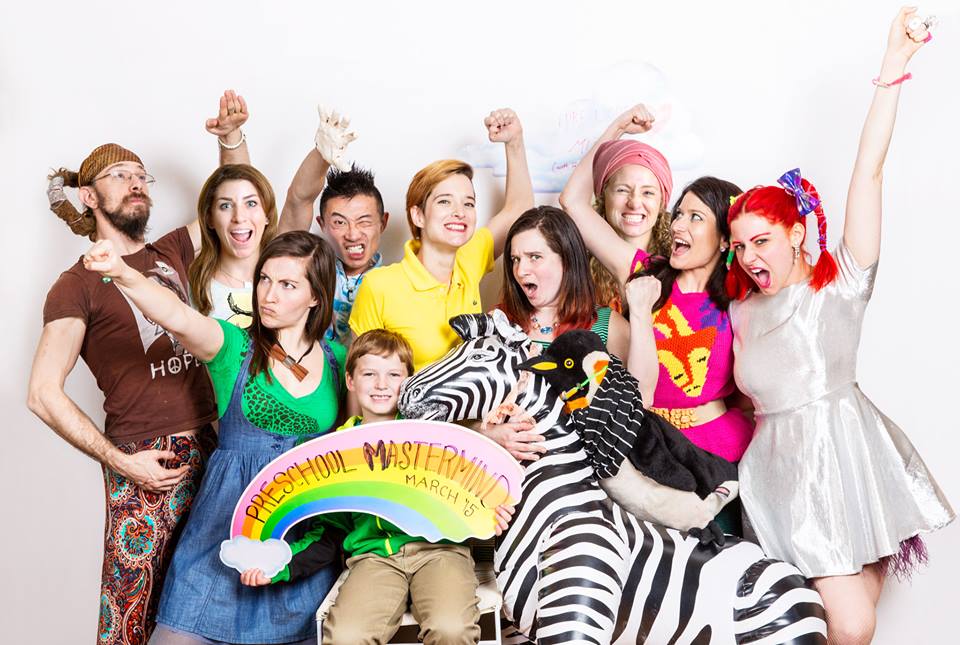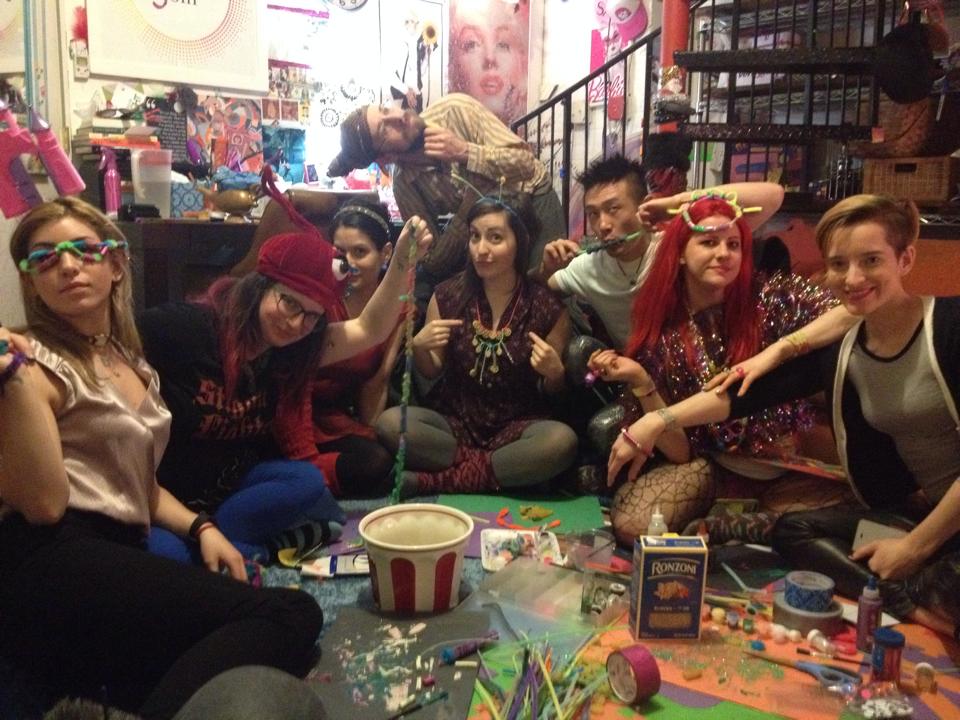What I learned about being an adult by going back to preschool
As soon as I heard there was going to be a preschool for adults, I knew I had to attend. I was feeling exhausted from being a full-time single mother, and this sounded like the perfect opportunity to unwind. Co-founder Michelle Joni Lapidos and I set up a “preschool interview,” via Skype, and she asked me what I remembered from the first time around. I told her about my memories of making vanilla ice cream from scratch, decorating ceramic plates with custom designs using markers and paint, casting our handprints in plaster—and having lots of fun, of course.


As soon as I heard there was going to be a preschool for adults, I knew I had to attend. I was feeling exhausted from being a full-time single mother, and this sounded like the perfect opportunity to unwind. Co-founder Michelle Joni Lapidos and I set up a “preschool interview,” via Skype, and she asked me what I remembered from the first time around. I told her about my memories of making vanilla ice cream from scratch, decorating ceramic plates with custom designs using markers and paint, casting our handprints in plaster—and having lots of fun, of course.
Preschool Mastermind is a four-week long course Lapidos and co-founder Candice Kilpatrick have started out of Joni’s Park Slope, Brooklyn “play space.” Founded on the principle that adults can learn something by tapping into their younger, more carefree psyche, Joni’s course is designed to help adults break out of stagnation and tap back into the “play” part of their brains. “We’re bringing ourselves back to another place, another time with ourselves,” Lapidos told The Village Voice in Jan. 2015. “Maybe when we were more believing of ourselves, when we were more confident and ready to take on the world. And I want to nourish that in people.”
Needless to say, I was excited to go back to school.

The first day of “class” was a Tuesday in March. Classes were held each week from 7 to 10pm. When I arrived at The Dream Factory (Michelle’s playhouse) I didn’t know quite what to expect. Ms. Joni (Michelle’s teacher name) and Ms. Can Can (my friend Candice, in the role of teaching assistant) greeted me at the door and directed me down into the basement play area, where the other students, mostly adults in their twenties and thirties, were engaged in silent playtime.
I initially gravitated toward Nikki, whose nametag read NiNi, who finger-painting on a giant canvas. NiNi waved in my direction, inviting me to come join her. Although I love to paint, I don’t often have the opportunity in “real life.” Meanwhile Steven Chu, aka “Chubie,” was creating a blue pancake with Play-Doh. I touched the material, more sandy then the kind you buy in the store. The sensation felt amazing on my fingertips. Chubie generously handed me his last bit of purple Play-Doh. Sharing, I thought. Adults don’t inherently think to share. Although something that children are taught at a young age, why does it feel like adults forget how to do it somewhere along the path of life?
This would be only the first of several similar realizations I would have as class continued. Maybe preschool students really did understand some fundamental truths better than their elders. When Lapidos blew the “cleanup conch,” signaling the end of silent playtime, everyone quickly pitched in, even though we hadn’t yet spoken a word to each other. It was a welcome feeling of togetherness.

The students in my preschool cohort turned out to be a wonderfully diverse bunch. My first friend in the class, NiNi, was an executive assistant who loves the novella The Little Prince. Then there was Mandar, a sweet and fun corporate attorney and fellow cat-lover who had the best make-believe costumes. And Chubie, a computer whiz who managed to help us see the beauty in human interactions. Echo was a very spiritually open man who specializes in energy work, Hannie was an extremely talented photographer with the kind of aura that always made me want to sit next to her. And finally there was me, Fader, a single mother of two looking to remember what fun was.
Ms. Joni and Ms. Can Can made it clear immediately that this was a space without judgement. Their activities reminded me again and again of the ways adulthood makes us forget the basics of human interaction. During show-and-tell for example, I realized I was terrified of sharing my object. This is the kind of anxiety that is learned—young children aren’t born worrying whether their fellow toddlers will look down on their favorite toy.
One of the most fun projects we did in was called “superheroes.” My superhero was called “Confident Girl.” If my feelings were hurt, I made it a point to express myself rather than internalize it. Confident Girl doesn’t hesitate, she speaks her mind no matter what!
Children embrace playtime as a time where they can explore, experiment and learn from one another. We, as adults, can do this too. In the adult world, we are often so focused on “important things,” like paying the bills and being responsible, that we forget what it means to truly let go and explore new things. When we do allow ourselves to let our guard down, we feel guilty about it. Playtime is a chance to embrace our true selves. We could learn a lot from children if we paid more attention to them.